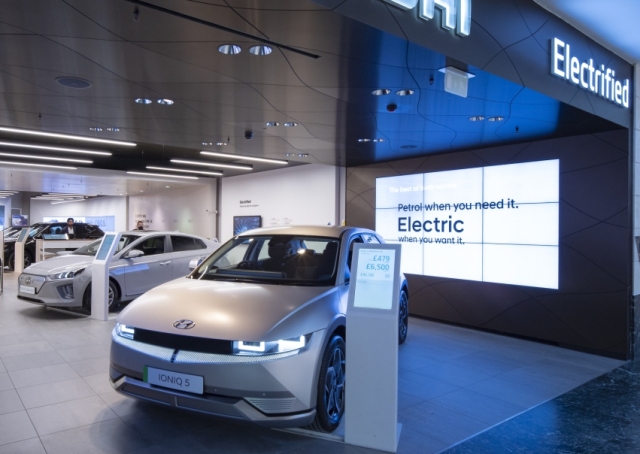Hyundai Motor is set to significantly increase its annual investment in electrification, allocating $28 billion over the next ten years.
The move is part of a broader strategy to bolster electric vehicle (EV) sales and entails a comprehensive restructuring of its struggling China business.
During its annual investor day, Hyundai, along with its affiliate Kia, the world’s third-largest auto group in terms of sales, announced a revised EV sales target of 2 million units by 2030, up from the previous goal of 1.87 million. This new target would account for approximately one-third of its total vehicle sales, a substantial increase from the expected 8 percent for this year.
Hyundai attributed the upward revision to the surging global demand for EVs, which is outpacing market forecasts. To meet the revised target, the company plans to ramp up local EV production in its primary markets of the United States, Europe, and South Korea, taking advantage of tax benefits and incentives offered by countries promoting domestically manufactured vehicles.
In the United States, where Hyundai’s largest market lies, EV production is projected to represent 75 percent of its total vehicle production by 2030, a significant rise from the current 0.7 percent share.
While expanding EV sales targets, Hyundai also announced plans to restructure its struggling China business, focusing on improving profitability. CEO Jaehoon Chang acknowledged that China, the world’s largest vehicle market, had been highly profitable until 2016 but has become a major risk due to increased competition from nimble domestic rivals.
To mitigate the challenges, Hyundai sold one China plant in 2021 and intends to divest two more, including one that was closed last year and another that will be shuttered this year. The remaining two plants will be streamlined and repurposed for exports to emerging markets. Furthermore, Hyundai will streamline its product lineup in China from 13 models to 8, with a focus on high-end and SUV models, including the Genesis luxury brand.
Hyundai Motor also has plans to enhance its battery competitiveness and develop next-generation batteries. It intends to invest 9.5 trillion won ($7.4 billion) over the next decade for this purpose. By around 2025, Hyundai aims to introduce competitive lithium-iron-phosphate (LFP) batteries, which offer a more affordable alternative to lithium-ion batteries and have contributed to the widespread adoption of EVs in China. Toyota, Hyundai’s major rival, recently revealed a similar plan to incorporate LFP batteries into its offerings.
Hyundai’s goal is to secure over 70 percent of its batteries through joint ventures by 2028 and establish partnerships with specialized companies and startups to ensure a stable supply. The company is actively engaged in joint research and equity investments in startups to accelerate the development of next-generation batteries.
With regards to financial targets, Hyundai Motor aims to achieve an operating profit margin of 10 percent or higher in the EV business by 2030. The planned investment of 35.8 trillion won ($28 billion) in electrification is part of a larger budget totaling 109.4 trillion won that Hyundai plans to allocate through 2032.

